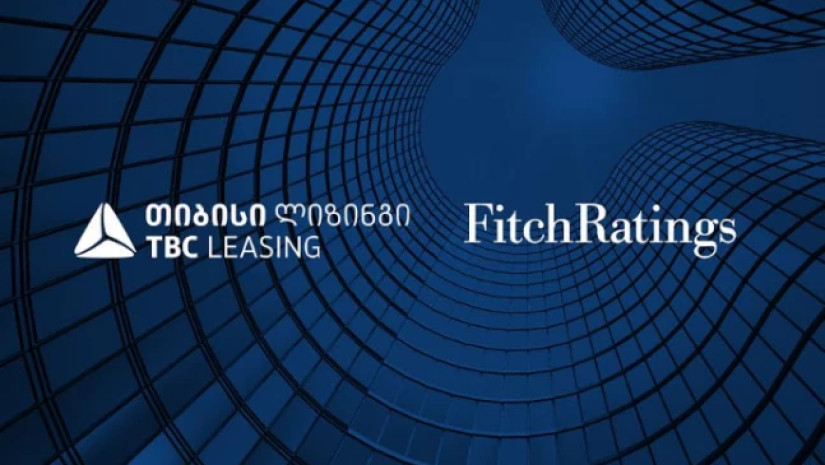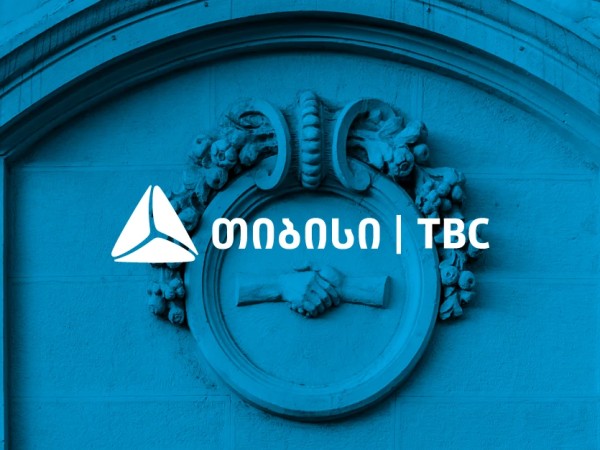Fitch Ratings has affirmed JSC TBC Leasing's (TBCL) Long-Term Issuer Default Rating (IDR) at 'BB-', with a Stable Outlook. A full list of rating actions is below.
TBCL operates solely in Georgia, its domestic market, and is the market leader in leasing. The company mainly provides financial leasing to corporate clients of TBC Bank (BB-/Stable/bb-) as well as to SMEs, micro-businesses, and individuals.
Fitch has withdrawn TBCL' Support Rating of '3' as it is no longer relevant to the agency's coverage following the publication of its updated "Non-Bank Financial Institutions Rating Criteria" dated 31 January 2022. In line with the updated criteria, we have assigned a Shareholder Support Rating (SSR) of 'bb-' to TBCL.
KEY RATING DRIVERS
TBCL's IDR is driven by expectations of support from TBC Bank as reflected in TBCL's SSR and equalized with the parent's IDR. The Stable Outlook mirrors that on the parent. Fitch's view of a high probability of support is based on the high reputational risk from a subsidiary default for TBC Bank, as this would significantly damage its reputation with its key wholesale lenders.
Fitch's view is also underpinned by full ownership, close integration with and a record of capital and funding support from TBC Bank. To support TBCL's growth, the parent has injected additional equity on several occasions (most recently in December 2019) and has already approved additional available capital of GEL2.5 million, to be disbursed based on TBCL's needs. TBC Bank provides TBCL with subordinated and senior loans as well as letters of support to enable third-party borrowing. It also facilitates TBCL's bond placements.
TBCL's clients are often at higher risk than those of TBC Bank (impaired leases and other impaired financial assets accounted for a high 23% of total leases and financial assets at end-2021), but this is partly mitigated by access to liquid collateral and adequate pricing of risk. While we expect a reduction in stage 3 exposure due to an acceleration of repossessions during 2022, asset-quality indicators will likely remain weak in the medium term. TBCL aligns its strategy and risk policies with those of the parent, although TBCL's management is independent in its operational decisions.
TBCL's standalone credit profile does not drive the IDR as it is constrained by a monoline business model, poor asset quality, high-risk appetite, and tolerance for high leverage (with a gross debt/ tangible equity of 6x at end-1Q22). Positively, TBCL's profitability is a strength (pre-tax income/average assets of 3.1% and return on equity of 29% in 2021), being above TBC Bank's target and highlighting TBCL's positive contribution to the parent's performance.
TBCL's senior secured debt rating is equalized with the company's Long-Term IDR, notwithstanding the bond's secured nature and an outstanding buffer of contractually subordinated debt. This reflects our expectations of average recoveries because asset recoveries in the event of both TBCL and TBC Bank being in default would likely be weighed down by considerable macroeconomic stress that would likely accompany such an event.
RATING SENSITIVITIES
Developments that may collectively or individually lead to positive rating action/upgrade:
-An upgrade of TBC Bank's Long-Term IDR by one notch would lead to an upgrade of TBCL's IDR and senior secured bond rating
Developments that may collectively or individually lead to negative rating action/downgrade:
-A downgrade of TBC Bank's Long-Term IDR would lead to a downgrade of TBCL's IDR
-A material weakening of TBC Bank's propensity or ability to support TBCL could result in the subsidiary's rating being notched down from the parent's IDR. This could be driven, for example, by greater regulatory restrictions on support or diminishing of TBCL's strategic importance
-A downgrade of TBCL's Long-Term IDR would be mirrored in a downgrade of the company's senior secured bond rating
BEST/WORST CASE RATING SCENARIO
International scale credit ratings of Financial Institutions and Covered Bond issuers have a best-case rating upgrade scenario (defined as the 99th percentile of rating transitions, measured in a positive direction) of three notches over a three-year rating horizon; and a worst-case rating downgrade scenario (defined as the 99th percentile of rating transitions, measured in a negative direction) of four notches over three years. The complete span of best- and worst-case scenario credit ratings for all rating categories ranges from 'AAA' to 'D'. Best- and worst-case scenario credit ratings are based on historical performance.
For more information about the methodology used to determine sector-specific best- and worst-case scenario credit ratings, visit https://www.fitchratings.com/site/re/10111579
REFERENCES FOR SUBSTANTIALLY MATERIAL SOURCE CITED AS KEY DRIVER OF RATING
The principal sources of information used in the analysis are described in the Applicable Criteria.
PUBLIC RATINGS WITH CREDIT LINKAGE TO OTHER RATINGS
TBCL's IDR is driven by support from TBC Bank.
ESG CONSIDERATIONS
As support-driven issuers have strong linkages to their support providers, the ESG Relevance Score assigned to the 'supported' subsidiaries often mirror those of their corporate and financial institution parents. This reflects our opinion that many of the ESG factors at the parent level are credit-relevant for the subsidiary.
Unless otherwise disclosed in this section, the highest level of ESG credit relevance is a score of '3'. This means ESG issues are credit-neutral or have only a minimal credit impact on TBCL, either due to their nature or the way in which they are being managed. For more information on Fitch's ESG Relevance Scores, visit www.fitchratings.com/esg













